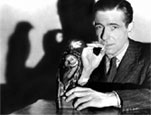 A few words about the meaning of our name.
A few words about the meaning of our name.What's the blackbird doing in Blackbird Leadership?
The blackbird is very common to Northeastern US, where we are based. Wallace Steven's poem, "Thirteen Ways of Looking at a Blackbird" is one of the most beautiful poems we have ever read. It evokes how natural things that are around us can represent what is most breathtaking and unforgettable in our lives. The poem asks, "Are we paying attention to these common birds? Do we see what walks around us? Do we remember or celebrate what is most important in daily existence?" (Indeed, what business executive has not at some point in his career asked himself these exact questions?)
Stevens' poem, stanza by stanza, asks us to wonder about these important details in a poetic evocative way. Notice, too, how each small stanza in itself constitutes a beautiful little poem!
(Read "Thirteen Ways of Looking at a Blackbird")
Our name, Blackbird Leadership is meant to be suggestive also:
As leaders it is more important for managers to be inspirational, reflective and yes, even evocative than controlling, demanding and coercive.
As leaders it is more important for us to think of the values and the civilization we represent in driving our business results, than the results without the values and civilizing effects of the world we have created.
Stevens' poem is about perspective. The "13 Ways" represent all the different views of the blackbird. Much of our post-modern organizational world is about perception. Every contemporary executive gets what Stevens was implying: how we see and are seen, is not only as important as reality for us, it is reality. Therefore, knowing how we are seen and see ourselves and others are vital parts of our lives in organizations. Especially for leaders!
Lastly, the blackbird represents race. Race has been a great divider in the US and the world, and as one of our greatest dividers, it also represents one of our greatest possibilities.
What would it look like to be a truly inclusive organization driven by mature values producing business results? Where could that kind of competition lead us? It is our contention at Blackbird Leadership that organizations that ask these questions will be the ones where issues of race and culture becomes solutions of race and culture.